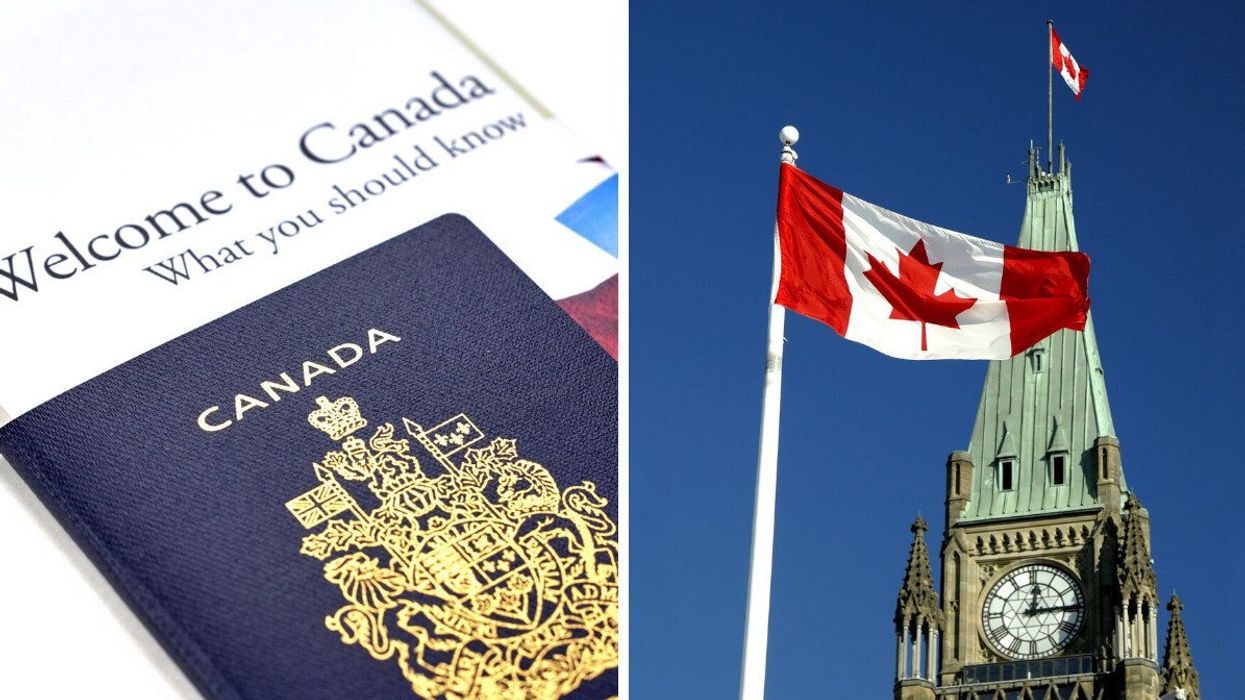Canada just announced a major change to citizenship rules — Here's what Bill C-3 means for you
The proposed law could grant a bunch of people automatic citizenship. 🇨🇦

A bill introduced on Thursday would extend Canadian citizenship-by-descent rules.
Some big changes could be coming to Canadian immigration and citizenship rules.
A new bill introduced by the federal government on Thursday would allow certain Canadians born outside the country to pass citizenship on to their kids — even if those kids are also born abroad.
Bill C-3 aims to extend Canadian citizenship-by-descent rules beyond the first generation born outside Canada. It's a big deal for anyone trying to navigate Canadian citizenship rules, especially if you're part of a globe-trotting family or have strong ties overseas.
Right now, the law only allows Canadian parents to automatically pass on citizenship to children born abroad if the parent was either born or naturalized in Canada. This "first-generation limit" has been in place since 2009.
The newly proposed legislation would loosen that restriction, creating new paths to citizenship for people with a strong connection to Canada.
According to Immigration, Refugees and Citizenship Canada (IRCC), this change would directly impact folks often referred to as "Lost Canadians" — people who either lost their citizenship or never qualified due to outdated laws.
Changes to the Citizenship Act in 2009 and 2015 helped about 20,000 people get or regain citizenship, but many others still did not qualify. This new bill could finally close that gap.
If passed, Bill C-3 would do two big things.
First, it would automatically give Canadian citizenship to anyone who would have qualified if not for the first-generation limit or other now-defunct legal provisions.
Second, it sets up a new system for citizenship by descent going forward. Parents born abroad would still need to show a "substantial connection" to Canada — specifically, they'd have to prove they lived in the country for at least 1,095 days (that's three years) before their child was born or adopted.
"Citizenship is more than a legal status — it's a profound connection to the values, history, and spirit of Canada," said Immigration Minister Lena Metlege Diab in the June 5 announcement. "By requiring those who pass citizenship to their children born abroad beyond the first generation to have a substantial connection to our country we are honouring that bond."
The move follows a 2023 Ontario Superior Court decision that called parts of the existing rules unconstitutional. Rather than appeal, the government decided to move forward with fixing the law — something IRCC says is long overdue.
For now, if you think this bill might apply to you or someone in your family, sit tight. An interim measure has been in place since March for people affected by the current rules while the legislation was being drafted, and the government says it will remain in place while the bill moves through Parliament. More details are expected once it receives Royal Assent.
In the meantime, people affected by the current rules — especially those with children born abroad — may want to follow this legislation closely to see how it could impact their family's path to citizenship.
AI tools may have been used to support the creation or distribution of this content; however, it has been carefully edited and fact-checked by a member of Narcity's Editorial team. For more information on our use of AI, please visit our Editorial Standards page.
- 9 things I wish I knew about Canada before I moved here from Ireland ›
- Canada is about to further restrict immigration eligibility — Here's what you need to know ›
- The CRA is making it easier for newcomers to Canada to apply for benefit payments - Narcity ›
- Canadians are leaving the country in droves and one province is leading the exit - Narcity ›